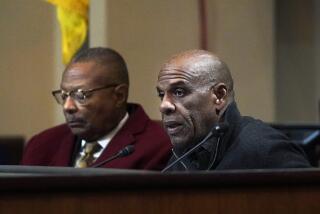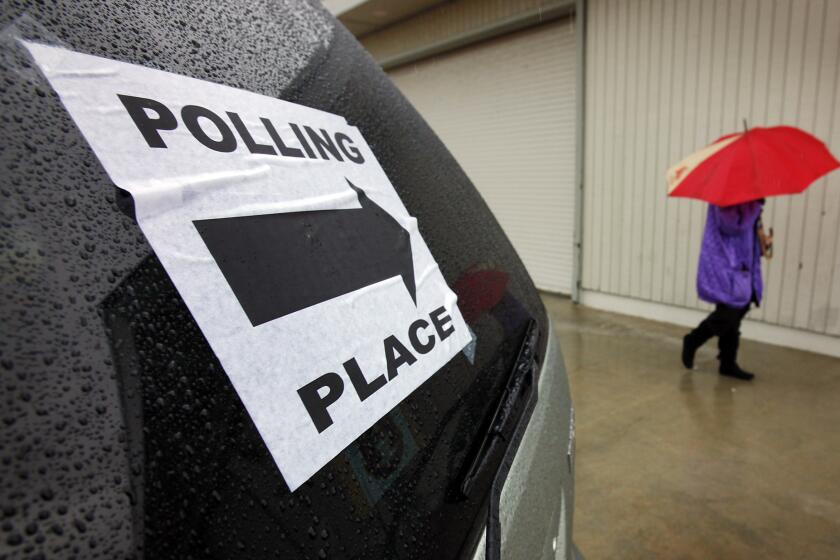British government apologizes for colonial abuses in Kenya
NAIROBI, Kenya — It was not quite a direct apology and it came at least 50 years late.
But the British government’s “sincere regret” for colonial abuses of Kenyans during the Mau Mau uprising of the 1950s and its agreement to pay $30 million in compensation to surviving victims was the first time Britain has admitted guilt over colonial era abuses, not just in Kenya but anywhere, according to Harvard historian Caroline Elkins.
It was also a landmark admission by Britain that its empire was far more violent and sordid than the splendid lyrics of “Rule Britannia” convey, according to Elkins, who was in Nairobi for the announcement.
“It’s the first time the British government has acknowledged that it was not the empire it claimed to have been,” Elkins, author of the Pulitzer Prize winning book “Imperial Reckoning: The Untold Story of Britain’s Gulag in Kenya,” said in a phone interview. “Never before has the British government issued an apology like this.”
British Foreign Secretary William Hague announced the compensation payments — averaging about $5,700 for each of the 5,228 claimants — in Parliament, acknowledging that the victims were tortured and abused by the colonial administration.
“The British government sincerely regrets that these abuses took place and that they marred Kenya’s progress toward independence,” Hague said. “Torture and ill treatment are abhorrent violations of human dignity which we unreservedly condemn.”
Thousands of Kenyans were killed in the Mau Mau rebellion against British rule and thousands more were detained and tortured, including the grandfather of President Obama, according to Obama’s step-grandmother, Sarah Onyango Obama.
The brutality was one of the empire’s guilty secrets, and it was never supposed to get out: “If ... we are going to sin, we must sin quietly,” the British attorney general in Kenya, Eric Griffith-Jones, told the governor, Sir Evelyn Baring, in a 1957 letter. It was one of thousands of official documents finally released from government archives last year.
The rebellion began in 1952 and continued until 1960. Kenya gained independence in 1963. According to the Kenya Human Rights Commission, 90,000 Kenyans were killed, tortured or maimed during the conflict, and 160,000 were held in inhumane prison camps.
Five elderly Kenyans filed claims against the British government in 2009, but the law firm Leigh Day eventually represented the 5,228 Kenyan claimants. Among the original claimants, Paulo Muoka Nzili testified that he was castrated by British soldiers. Wambuga Wa Nyingi was in the Hola prison camp in 1959 when British guards carried out horrific beatings, killing 11 people. He was beaten with clubs and passed out. Jane Muthoni Mara suffered sexual abuse in a prison camp.
Justice came too late for the two other original claimants, who died as the case dragged on.
For decades the British Foreign Office kept documents describing the torture of Mau Mau rebels hidden in a secret archive at Hanslope Park, Buckinghamshire. Until 2011 it denied the archive’s existence.
In court the British government tried to fend off the claims, arguing that the Kenyan government should take responsibility — even though the abuses occurred before Kenyan independence — and that the events were too long ago to enable a fair trial to take place.
Even after the High Court ruled in October that the compensation claims could proceed, the British government appealed, saying that the judgment had “potentially significant and far-reaching implications,” apparently fearing the case could open the way for other claims in other former colonies.
But Hague said Thursday the government did not believe the payment set such a legal precedent.
Some of the claimants wept as Hague’s statement was read at a ceremony marking the occasion at the British High Commission in Nairobi. Afterward some sang Mau Mau songs.
According to Elkins, the Kenyans won their case thanks to the reams of documentary evidence released last year. These showed that British government officials claimed Hola massacre victims died after drinking contaminated water but were aware they’d been beaten to death.
Among the damaging evidence contained in the 1957 letter from Griffith-Jones to Baring were instructions on how soldiers could continue to beat victims legally. He wrote that “those who administer violence should remain collected, balanced and dispassionate,” avoiding the vital organs such as the liver, kidneys and spleen.
Mzee Gitu Wakahengeri, head of the Mau Mau War Veterans Assn., said at a Nairobi news conference that veterans accepted the offer because they feared that an appeal would draw the process out several more years.
He said there was “no amount of compensation that can cover for the loss we suffered. But the fact that the U.K. government has acknowledged and accepted that something bad happened and regret is given and the simple apology statement is enough for us.”
Times staff writer Dixon reported from Johannesburg, South Africa, and special correspondent Soi from Nairobi.
More to Read
Sign up for Essential California
The most important California stories and recommendations in your inbox every morning.
You may occasionally receive promotional content from the Los Angeles Times.










